As beloved members of our families, cats bring joy and comfort to our lives. However, amidst their grace and charm, cats can also face health challenges.
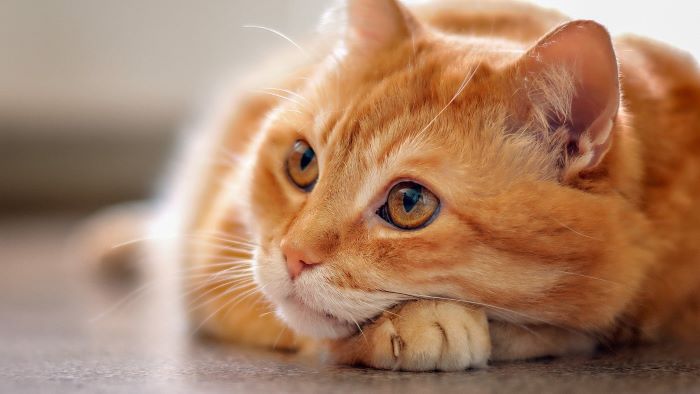
One of them is Feline Infectious Viral (FIV), often referred to as “feline AIDS,” which poses a significant threat to the well-being of our feline friends, affecting their immune systems and leaving them vulnerable to a range of infections and diseases.
Understanding FIV and taking proactive measures to address it are vital in ensuring the health and happiness of these beloved creatures.
What Is FIV in Cats? Causes and Transmission
Feline Immunodeficiency Virus (FIV) is a Lentivirus that affects cats worldwide. Also called ‘cat FIV’ is a retrovirus infection first discovered in cats in the U.S.
It belongs to the Lentivirus family, which also includes the Human Immunodeficiency Virus (HIV) that affects humans. FIV and HIV are both lentiviruses. However, humans cannot be infected by FIV, nor can cats be infected by HIV.
FIV is transmitted primarily through deep bite wounds, where the virus present in the infected cat’s saliva enters the body tissues of another cat. It can also infect kittens during birth or nursing through their infected mother.
Rare cases of transmission through sexual contact or sharing of contaminated needles. FIV-positive cats can share water bowls, and food bowls, and use the same litter box with a low danger of transmitting the disease.
These cats are typically isolated from the other cats and need to go to homes with other FIV-positive cats or with no other cats.
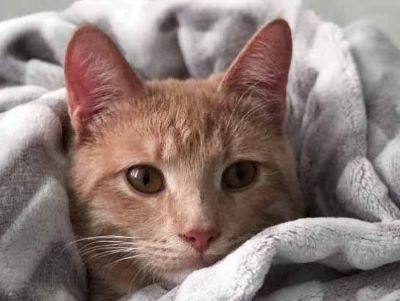
Defying the Virus: Symptoms and Stages
Once a cat gets infected with FIV, the virus stays in the body for life. The advancement of the disease varies among individual cats.
According to Dr. Krista Seraydar from PetMD, there are a few stages of this disease that we should understand to take care of our cats in a better way.
1. Acute Stage
After the initial infection, some cats may experience a short period of mild illness, which often goes unnoticed. The cat’s immune system starts responding to the virus, but symptoms are generally mild or absent.
2. Asymptomatic Stage
Many infected cats enter a long asymptomatic stage where they appear healthy and show no evident signs of illness. This stage can last for several years or even the cat’s entire life. However, they can still transmit the virus to other cats during this stage.
3. Symptomatic Stage
Over time, some FIV-positive cats may develop symptoms due to a weakened immune system. Common symptoms include:
- Fever
- Lethargy
- Lymph node enlargement
- Salivation
- Weight loss
- Abscesses
- Decrease in appetite
- Diarrhea
- Abortions or stillbirths
- Chronic respiratory infections
- Conjunctivitis
- Weakness
- Seizures
- Behavior changes
- Poor coat condition and chronic inflammation of the gums (gingivitis).
These symptoms may worsen as the disease progresses. With proper guidance from a veterinarian, implementing the right remedies and providing healthy nutrition can help improve the quality of life for FIV-positive cats.
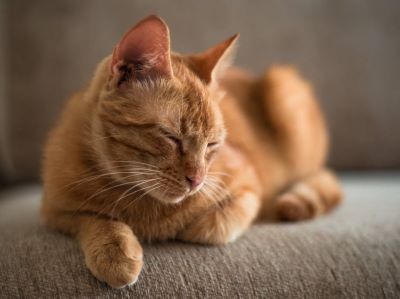
Treatments of FIV
FIV weakens the cat’s immune system, making them more exposed to various infections and illnesses. While there are no vaccines for FIV[1], there are treatments and management strategies that can help improve the quality of life for infected cats.
Dr. Vanesa Farmer from WebMD suggests the following symptoms:
- Symptomatic Treatment: Managing symptoms may include medications to treat infections, such as antibiotics or antiviral drugs. Other supportive treatments, such as fluid therapy, and pain management, may also be employed as needed.
- Diet: Cats may experience loss of appetite in such cases providing a balanced and nutritious diet is crucial for maintaining the cat’s overall health. Your veterinarian can recommend an appropriate diet based on the cat’s specific needs.
- Stress: Stress can weaken the immune system further, so providing a calm and stress-free environment is beneficial. This includes minimizing environmental changes, providing comfortable resting areas, and ensuring a routine and predictable daily schedule.
Recovery and Prevention
When it comes to FIV in cats, Regular veterinary check-ups and testing can help detect FIV early and ensure appropriate care and management for infected cats.
“It’s important to note that there is no known cure for the infection, Once a cat is infected with FIV, it will carry the virus for life”, confirms Dr. Malcolm Weir at VCA Hospitals.
However, there are steps that can be taken to boost the cat’s well-being and reduce the risk of further transmission:
1. Preventive Measures
- Neutering: It is crucial to spay or neuter cats to prevent fighting behaviors and reduce the risk of FIV transmission through bite wounds.
- Indoors: Keeping cats indoors eliminates the risk of exposure to FIV-infected cats and reduces the likelihood of fights and potential transmission.
- Minimizing Exposure: If you have both FIV-positive and FIV-negative cats, it’s important to separate them to prevent transmission. Avoid sharing food bowls, water bowls, and litter boxes among infected and uninfected cats.
- Regular Veterinary Care: Routine check-ups and testing can help monitor the cat’s health and detect any potential infections or complications early.
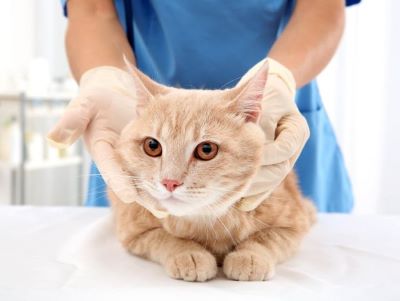
By following these preventive measures and providing appropriate care, the risk of FIV transmission can be significantly reduced. Responsible cat ownership and a proactive approach to their health can contribute to the well-being of FIV-positive cats and the prevention of FIV in uninfected cats.
2. Recovery
While there is no complete recovery from FIV, infected cats can still lead fulfilling lives with proper care. Providing a stress-free environment, a balanced diet, and regular veterinary check-ups can help manage symptoms and maintain their overall health.
Two forms of Antiviral Therapy are sometimes used in FIV-infected cats[2], Interferons and Antiviral drugs. Interferons are a group of naturally-produced compounds that have anti-viral effects and modify immune responses.
Recombinant Feline Interferon is available in some countries and it is possible that using this may have some helpful anti-viral and immune-modulating effects. It is unlikely to have a profound effect in FIV-infected cats, but your vet may suggest trying this as a treatment.
Antiviral Drugs such as AZT – some of the human antivirus drugs used to treat HIV are also effective against FIV and can be safe to use, although careful monitoring of cats is needed.
These drugs cannot cure a cat with FIV, but especially if the signs of disease are quite severe, this may be a form of therapy that your vet will offer.
Treatment is expensive though, and many cats appear to do just as well with good supportive therapy. Consult with your vet about your specific situation and steps accordingly.
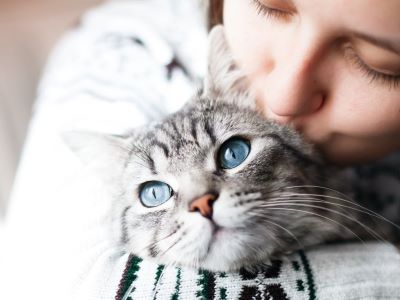
FAQs
How Contagious Is FIV to Other Cats?
Can positive cats be kept with other pets? Although FIV isn’t easily transmitted between cats (only through deep bites and not via sharing food and other normal interaction), the risk means that an FIV-positive cat should only be adopted into a single-cat household.
Can FIV Be Transmitted Through Scratches?
FIV is transmitted through bites or scratches from infected cats. FIV+ mothers can pass the virus on to kittens. Cats can have FIV for months or years without showing symptoms. Treatment for cats with FIV is limited and focuses primarily on supportive care.
Is FIV in Cats Curable?
Unfortunately, there is currently no definitive cure for FIV. However, it is important to realize that while it is impossible to predict the survival of a given cat infected with FIV, cats infected with FIV can live very normal, healthy lives for many years if managed appropriately.
Can Cats Be Vaccinated for FIV?
Vaccination – if your cat has been tested for FIV and the result is negative, they can be vaccinated against the virus. Keep your cat indoors or in an enclosure to limit their exposure to other cats. Desex your cat to decrease the chance of them roaming and fighting with other cats.
Symptoms of a Cat Dying of FIV?
Inflammation of the gums and severe dental disease, known as gingivostomatitis, is common in cats infected with FIV, and they are significantly more likely to develop cancer and immune-mediated blood disorders than healthy cats. Weight loss, seizures, behavioral changes, and neurological disorders are all possible.
When to Put Down a Cat With FIV?
These individuals may suggest euthanasia of a cat that tests positive for FIV. This is an unnecessary measure. Cats infected with FIV should never be euthanized unless they are experiencing a severe, debilitating illness that cannot be treated.
Summary
So to answer what is FIV in cats then Feline Immunodeficiency Virus (FIV) is a viral infection that affects cats globally. FIV can be the disease that cats carry for the rest of their life but it does not have to get worse with time.
Providing a stress-free home, balanced nutrition, and regular veterinary check-ups are crucial in boosting their well-being. Preventive measures such as spaying, neutering, and keeping cats indoors help reduce the risk of transmission.
With patience and love for our cats, we can make a significant difference in preventing the spread of FIV and securing a healthy future for all cats.
Reference:
- Ms, N. S. D., Ph.D. (2022, August 18). What Is FIV and Why Is the FIV Vaccine No Longer Available?– PetMD.
- Rowe, L. (2019, October 6). Feline Immunodeficiency Virus (FIV)– International Cat Care.

